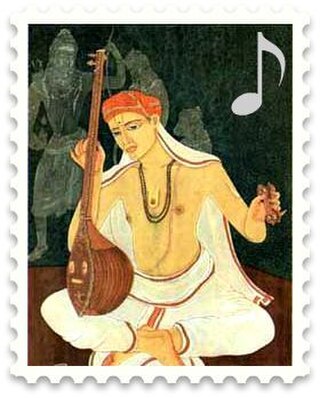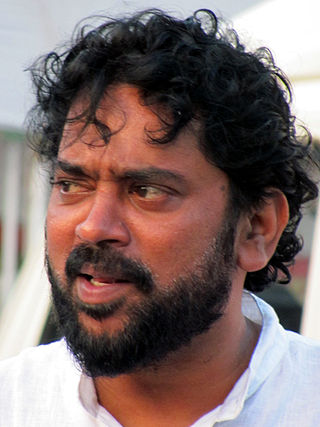Related Research Articles

Transhumance is a type of pastoralism or nomadism, a seasonal movement of livestock between fixed summer and winter pastures. In montane regions, it implies movement between higher pastures in summer and lower valleys in winter. Herders have a permanent home, typically in valleys. Generally only the herds travel, with a certain number of people necessary to tend them, while the main population stays at the base. In contrast, horizontal transhumance is more susceptible to being disrupted by climatic, economic, or political change.

Winged Migration is a 2001 documentary film directed by Jacques Cluzaud, Michel Debats and Jacques Perrin, who was also one of the writers and narrators, showcasing the immense journeys routinely made by birds during their migrations.

Music of Jammu and Kashmir reflects a rich musical heritage and cultural legacy of the Indian-administered union territory of Jammu and Kashmir. Two different regions of Jammu and Kashmir consists the Jammu region and Kashmir Valley. Music of Kashmir Valley has influences of Central Asian music while music from Jammu region is similar to that of other regions of North India.

Santosh Sivan is an Indian cinematographer, film director, producer and actor known for his works in Malayalam, Tamil and Hindi cinema. Santosh graduated from the Film and Television Institute of India and has to date completed 55 feature films and 50 documentaries. He is regarded as one of India's finest and best cinematographers. He is the recipient of twelve National Film Awards, six Filmfare Awards, four Kerala State Film Awards, and three Tamil Nadu State Film Awards.

The Bakharwal dog is a livestock guardian dog found in northern India. It is an ancient working Indian dog breed found in Ladakh and across the Pir Panjal Range of Jammu and Kashmir, India.

The Bakarwal,Bakkarwal or Bakrawala, are a nomadic ethnic group who along with Gujjars, have been listed as Scheduled Tribes in the Indian Union Territory of Jammu and Kashmir and Ladakh since 1991. Bakerwal and Gujjar is the largest Muslim tribe and the third-largest ethnic community in the Indian part of Jammu and Kashmir.

Poonch or Punch is a district of the Jammu division of Indian-administered Jammu and Kashmir in the disputed Kashmir region. With headquarters in the town of Poonch, it is bounded by the Line of Control on three sides. The 1947-48 war between India and Pakistan divided the earlier district into two parts. One went to Pakistan and the other became part of the then-Indian state of Jammu and Kashmir.

Gujari is an Indo-Aryan language spoken by most of the Gujjars in the northern parts of India and Pakistan as well as in Afghanistan. It is a member of the Rajasthani group of languages.
Gurjar is an Indo-Aryan agricultural ethnic community, residing mainly in India, Pakistan and Afghanistan, divided internally into various clan groups. They were traditionally involved in agriculture, pastoral and nomadic activities and formed a large heterogeneous group. The historical role of Gurjars has been quite diverse in society: at one end they have been founders of several kingdoms and dynasties and, at the other end, some are still nomads with no land of their own.

Mughal Road is the road between Bufliaz, a town in the Poonch district, to the Shopian district, in the union territory of Jammu and Kashmir, India. The 84-kilometre road traces a historic route used in the Mughal period over the Pir Panjal Pass, at an altitude of 3,500 m (11,500 ft), higher than the Banihal pass at 2,832 m (9,291 ft).

Aamir Bashir is an Indian actor, film producer, and director. He is best known for his role in the thriller film, A Wednesday, which earned him a Screen Award nomination for Best Actor in a Supporting Role. For his directorial debut film Harud, he won the National Film Award for Best Urdu Feature Film at the 60th National Film Awards. He is also known for his work in several other film productions.

Masud Choudhary was an Indian educator, social reformer, thinker and an administrator of Jammu and Kashmir union territory. He was the founding Vice Chancellor of Baba Ghulam Shah Badshah University in Rajouri, J&K. He was also the Chief Patron of the Gurjar Desh Charitable Trust. Choudhary served in the police and retired as the Additional Director of the General Police (IPS) in 2004.

Kalari or Kaladi is an Indian traditional ripened cheese product.This is a culinary dairy product invented by the nomadic tribal Gujjars centuries ago. It was crafted to address a specific need for the preservation of milk in a solid form during the sweltering summer months when these tribes venture into the hills with their livestock during bi-annual seasonal tribal migrations. Gujjars use this dairy food during the summer months to meet their nutritional requirements, and they sell it in markets in both divisions of Jammu and Kashmir to support their livelihood.

Hirpora Wildlife Sanctuary or Heerpora Wildlife Sanctuary is located, Hirpora in Shopian district of Jammu and Kashmir. It lies 12 km from Shopian town, 70 km (43 mi) south of Srinagar. It spreads over an area of 341 km2 (132 sq mi). It is bounded to the north by Lake Gumsar, northeast by Hirpora village, east by Rupri, south by Saransar and to the west by the Pir Panjal pass. The slopes are gentle to moderately steep on the eastern aspect and very steep with many cliffs on the higher northern and western aspect. The southern and southeastern portions are moderately steep. Heerpora wildlife sanctuary is one of the beautiful wildlife sanctuary in Jammu and Kashmir

Kashmiri cinema is the Kashmiri language-based film industry in the Kashmir Valley of the India,- administered union territory of Jammu and Kashmir. The first Kashmiri feature film, Mainz Raat, was released in 1964. In 2023, Welcome to Kashmir, directed by Tariq Bhat, became the first-ever Kashmiri-produced Bollywood film to release in Kashmiri cinemas.

Qazi Shibli is a Kashmiri journalist and editor of The Kashmiriyat, a digital newspaper covering general, political and human rights news from Jammu and Kashmir. In December 2019, Shibli's detainment ranked fifth on Time's list of "10 most urgent threats to press freedom."
The Pahari people or Pahari-speaking people is a cover term for a number of heterogeneous communities inhabiting in Jammu and Kashmir and also some parts of Pakistan administered Azad Kashmir who speak Pahari languages/dialects.

Javaid Rahi is an Indian author, a tribal social reformer, and a researcher of national repute. He has been consistently working for the past thirty years to protect the ethno-culture heritage of the indigenous Gujjar-Bakerwal tribe in northwest India. He is a writer of Gojri, Punjabi and Urdu languages. As a researcher, he has written 12 books and edited over 300 books and magazines in Gujari/Gojri, Urdu, and English, showcasing the literature, history, and culture of tribal communities like the Gujjars, Bakarwals, Shina-Dard, Sippis, and Gaddis—all of whom are enlisted as Scheduled Tribes in the Indian Constitution. In addition, he has written study papers and contributed to cultural treats of India's nomadic and pastoral communities.
Raja Shabir Khan is an Indian documenarty filmmaker from Kashmir who won two National Film Awards for his movie Shepherds of Paradise, The Best Non-Feature Film and Best Cinematography at the 60th National Film Awards in 2013.
References
- 1 2 3 "Gojri film shines at National Awards". m.tribuneindia.com. Retrieved 15 November 2023.
- ↑ "Regional films shine in non-feature category at National awards". DNA India. Retrieved 15 November 2023.
- 1 2 Gani, Abdul (29 January 2019). "Shepherds of Paradise, Line of Control". www.thecitizen.in. Retrieved 15 November 2023.
- ↑ "Syam Sharma, Manju Borahs films for IFFI". assamtribune.com. 15 September 2010. Retrieved 15 November 2023.
- ↑ "Award winning Sgr film-maker Khan urges youth to dream big to script success". risingkashmir.com. Retrieved 15 November 2023.
- ↑ "'Shepherds of Paradise' and 'Inshallah Kashmir' Bagged Awards at 60th National Awards". Kashmir Life. 19 March 2013. Retrieved 15 November 2023.